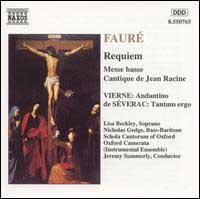In Memory, in Peace
Over the past few years, I've made a point of attending the National Memorial Day Concert on the grounds of the Capitol. This year was an exception, though I did watch it on TV. I know well what's coming each time: There will be dramatic readings of wartime memoirs by various actors, while the National Symphony plays Elgar's "Nimrod" from The Enigma Variations. All that is interspersed with music from various genres (One year we even had Renee Fleming!) and of course the armed forces medley, at which veterans and active-duty service members rise to their feet. This rousing sequence invariably follows the quieter, heart-rending reflections on war and sacrifice.
In all, the event is often entertainment blended with public expressions of love, grief, and gratitude. It's difficult for me to come away without feeling inspired and moved -- and also a bit voyeuristic.
But it does remind us that this holiday always was and is about those who serve. Until fairly recently, the National Memorial Day Concert acknowledged a lone World War I veteran in attendance. It's likely that custom is gone forever. However, during my childhood, the World War I veterans were not only still present but marching in the town Memorial Day parade, and the World War II vets were filling the suburbs with their growing families. Now even the latter vets are leaving us in great numbers.
As for the vulnerability of those serving today, each morning's newspaper brings fresh reasons for our grief.
I spent part of Memorial Day itself touring the National Cathedral with friends from South Carolina, and there too were unavoidable reminders of the costs of war -- the tombs, the memorial plaques, the stained glass windows, the depictions of the Last Judgment. Beyond all that, in the midst of our guided tour, we were called upon to pause as a public prayer for peace and reconciliation was offered -- a practice, apparently, that the cathedral observes around the clock.
In that spirit, it would have been appropriate for me to feature Benjamin Britten's War Requiem, given its antiwar sentiments and emphasis on reconciliation. I chose, however, the brief, spare Requiem by Gabriel Faure, not ruling out the Britten for a later date.
 Faure's Requiem is a small work, performed in slightly over 30 minutes, and as such usually is issued with other works on CD. Brief though it is, the Requiem has considerable emotional and aesthetic power.
Faure's Requiem is a small work, performed in slightly over 30 minutes, and as such usually is issued with other works on CD. Brief though it is, the Requiem has considerable emotional and aesthetic power.You might well accuse me of morbidity for selecting a work that is, after all, a service for the departed. Read the translations of the texts and you will find heart-rending appeals to God for mercy and redemption. Musically, however, Faure concludes the work not merely with a sense of hope but also of glory itself.
There are any number of recordings of the various versions of the Requiem, and your first thought may be to select a CD based on the number of recognizable names. But given that and the performances vary in tone, tempo, and conception, to say nothing of accompanying material, it's best to look at each as a whole.
The delicate beauty and simplicity of the performances on the Naxos recording would be enough to recommend it, but the inclusion of several other beautifully meditative works (Messe Basse, Cantique de Jean Racine, etc.) means approximately one hour of music.
The performance themselves are nicely balanced in terms of vocals and orchestration, with nothing overwrought. I must say I prefer the Nicholas Gedge's restraint on "Libera Me" to the ominous, darker tone some bass-baritones employ. The rather tender performance of "In Paradisum" invokes heavenly hosts as well as anything you are likely to hear. In short, this is a recording to leave you not only with hope but perhaps with a measure of serenity as well.
May there be peace on Earth.




0 Comments:
Links to this post:
Create a Link
<< Home